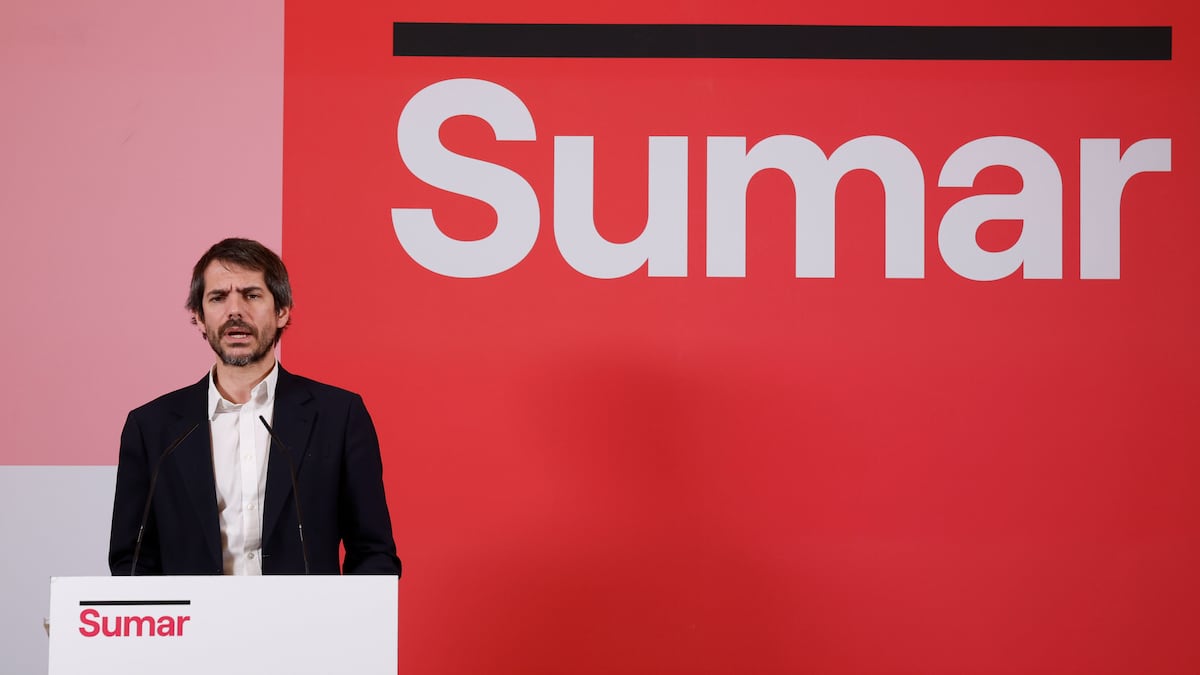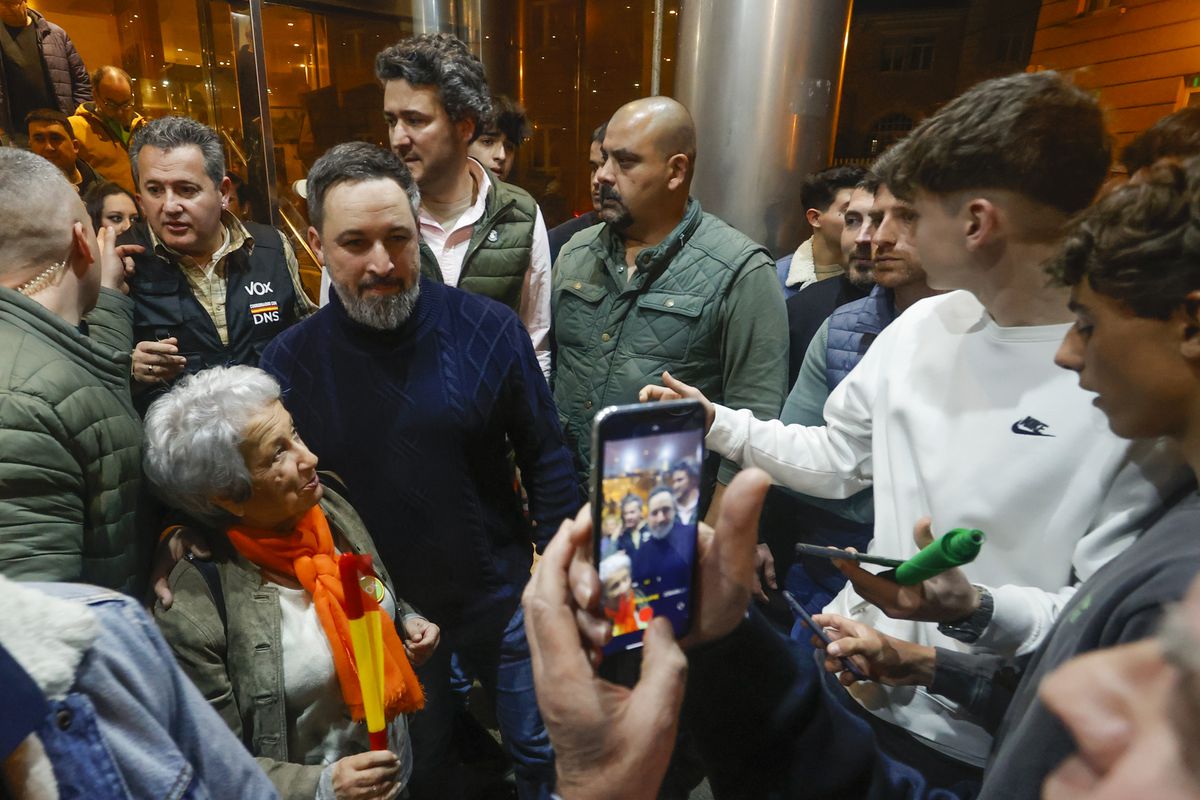No one stopped asking her, not her family, not her friends, not the people who stopped her on the street, not her colleagues from United We Can, not her government partners, not even a European commissioner.
“What are you waiting for, Yolanda?” they shot at her.
Yolanda Díaz's “listening process” had become so difficult that the most caustic were already presenting it as a kind of mythical creature.
Now, almost a year after having expressed the idea in public, the second vice president of the Government is finally embarking on the adventure.
The project will start next Friday at the Matadero cultural center in Madrid and will continue until the end of the year in various parts of Spain.
More than a political platform, it is defined as "a citizen movement" in which professionals from different fields, academics or artists have already committed to collaborate in order to contribute ideas in various sectoral working groups, explain sources that are participating in the gestation .
Its primary objective is to "reanimate the left", although that word will hardly be used.
Díaz aspires to go beyond the unconditional;
her objective, explain those who are in the kitchen of the project, is to elaborate a speech aimed at "a social majority", without resigning herself "to staying in the little corner to the left of the PSOE", as she herself has said.
The plan of the also Minister of Labor had begun to take shape last August, halfway between meetings in Madrid and getaways to the beach in Galicia.
In September, she had a complete document, in whose elaboration Díaz and members of her trusted team participated.
The general lines were already outlined there: methodology, objectives, deadlines, message, style... The will was to do something that would go beyond the parties, recover an optimistic discourse that would break with the "negativism" that its promoters attribute to the classic left, flee of the proclamations of great principles and to present concrete programs.
The idea was outlined, but in the following months the vice president barely unraveled some details by dropper, such as the registered name, Sumar.
Díaz did not think it necessary to hurry, she was absorbed in the labor reform negotiations and did not even confirm that her ultimate purpose was to constitute a platform for the next general elections.
Her initial idea was to wait for the spring of 2022 and, as the initiative developed, to forge the possible electoral conjunction after the summer.
The war in the Ukraine convinced her that this was not her time and she put it off again.
The "listening process" was still in the freezer, and the question was more and more insistent: what is Yolanda Díaz waiting for?
That same August of last year, the vice president had explained her plan to Pablo Iglesias and received his consent.
In the following months, relations between the two - friends for almost two decades - deteriorated irreversibly.
The different way of considering her role in the Government and the suspicion that grew in Podemos as the vice president dropped some of her plans ended up destroying that friendship.
Díaz tried to rebuild the bridges with the group led by Íñigo Errejón and constantly spoke of diluting the role of the parties, which obviously included the one founded by Iglesias.
The elections in Castilla y León and Andalusia -with almost no leading role for Díaz in the first case and somewhat greater in the second- resulted in one fiasco after another for United We Can.
The question now is whether Galician politics will still be in time to revive a political space that is languishing and that, as has been seen in Andalusia, almost always succumbs to its Cainite instinct.
“How are we going to be late if there is still a year and a half left in the legislature?” Diaz's team reply.
"Of course there is time."
In the environment of the vice president they minimize the scope of the failure in Andalusia because, they allege, a simple coalition of parties was formed there, very different from what she is pursuing now.
In the coming months, Díaz will develop her program of events for Spain, in which she insists that she will limit herself to listening, while 25 working groups prepare his documents.
At the beginning of next year, the time will come when the vice president has to confirm if she definitely takes the step,
The constant appeals to citizens above political structures inevitably evoke the first Podemos, although the message as a whole will be very different.
Iglesias's party was born from the energy of indignation and even believed it was possible to "assault the heavens."
Diaz's platform does not want to channel the rage, but rather "return the illusion" by showing itself as an affable and purposeful left.
The first video with which he has just presented his logo sets the tone: soft red colors and velvety words such as listening, dialogue, caring, progress, freedom, equality, illusion, union...
In the event next Friday there will be no line reserved for politicians.
Those who attend will do so individually.
There are also no party members in the working groups that will prepare the proposals.
After experiencing first-hand the sinking of the tides in Galicia, Díaz believes that leaving political formations out of the gestation of the project and involving outsiders in it is the best way to keep it safe from partisan vices.
If the experiment goes well and leads to an electoral platform, the parties will inevitably come into play -Podemos, IU, Más País, En Comú and other regional formations- with all their aspirations.
And Díaz will have to deal with the usual mother of all battles, the preparation of the lists, which should surely be settled through primary elections.
Until then, it will not be known with certainty if the vice president has managed to build something really new and escape the melancholy of a left bruised by years of failed experiments.
A momentary closing of ranks
The release of the Díaz project does not come preceded by the best news.
The judicial problems for a case of alleged cover-up of child abuse have forced the resignation of the Valencian vice president Mónica Oltra, called to be one of her main territorial allies.
And then, the crash of Andalusia.
Díaz wanted to emphasize from the beginning that this was not the project that she conceived, but she was much more involved in the campaign than in Castilla y León because it presented a novelty, the incorporation of Más País, for which she had fought.
After the Andalusian setback, the parties of United We Can, most of them eager for Díaz to put on the leader's suit as soon as possible to reverse the downward trend, have closed ranks with her.
The United Left and the commons did it very quickly - they have been dedicated to their strategy for a long time -, who tried to disassociate the results of the Por Andalucía coalition (a meager 7.68%, in a community where that political space was often around 20 %) of the future Diaz project.
"It is more necessary than ever," said the IU federal spokeswoman, Sira Rego, the morning after the elections.
"We have to open a new time that looks to the future and for us the next stop is on the 8th [Díaz's presentation] The dynamics of the past have to be left behind," confirmed the president of the UP parliamentary group, the Catalan Jaume Asens ,
referring to internal conflicts.
The total support of IU was reiterated this Saturday by its general coordinator and Minister of Consumption, Alberto Garzón, who pointed out to the members of his formation that Díaz's project "represents very well the desire of the different lefts to converge" and showed agree that "in this process the leading role should not be of the pre-established political parties."
The improvement of relations with Podemos contributed to the fact that, the day after the Andalusian elections, the vice president distanced herself from the PSOE by making public on social networks her group's proposal to include a tax on energy companies and a check to families in the decree of measures against the crisis.
The strategy, more typical of Podemos than of Díaz, pleased the party of Ione Belarra, while unleashing alarms in La Moncloa.
Formation sources affirm that the coordination in the conversations of those days to press for their demands before the PSOE and the common position in front of the NATO summit -of rejection, but with a low profile- have been key to improving the harmony between the ministers of Podemos and the vice president.
For the first time in months, Díaz attended last Monday, on the occasion of the Pride celebration,
Sources from Podemos repeat that they expect the "greatest success" of the process that the vice president begins on Friday.
In the party founded by Iglesias they would like Díaz to clearly announce her candidacy for the general elections, something that, at the moment, is not among her plans, according to sources close to her.
The obsession of those from Belarra is right now the PSOE, trying to convince it that without a turn towards leftist policies it will not be possible, in their opinion, to reissue the coalition government.
And that is how peace has been restored with Díaz, after months in which the two souls of UP in the Executive seemed to act freely.
In this time many wounds have accumulated - little-disguised attacks by Pablo Iglesias on Díaz, for example - and healing them will not be easy at all.
50% off
Exclusive content for subscribers
read without limits
subscribe
I'm already a subscriber



/cloudfront-eu-central-1.images.arcpublishing.com/prisa/DR76WUSHQBAM3HZGS3EYSZRMTM.JPG)



/cloudfront-eu-central-1.images.arcpublishing.com/prisa/5ECNTK27B5AVDEMTQDDHL2IGR4.jpg)

